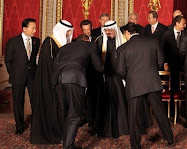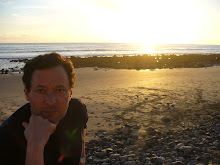Lawrence Auster is a sort of genius. Unlike most people in the counter-jihad movement who are so myopic that they can only focus on Islam, Auster has exposed in the plainest, commonsensical English, the axiological principle that is destroying, and will finally destroy in the following decades, our beloved West.
The following is only a part of a speech, “A Real Islam Policy for a Real America”, that Lawrence Auster delivered at a conference earlier this year. It has been recently published in a book:
To deal with the crisis facing our civilization, we must be both realistic and imaginative. The realism part consists in recognizing how bad our situation is. The entire Western world is at present under the grip of the modern liberal ideology that targets every normal and familiar aspect of human life, and our entire historical way of being as a society.
The key to this liberal ideology is the belief in tolerance or non-discrimination as the ruling principle of society, the principle to which all other principles must yield. We see this belief at work in every area of modern life. The principle of non-discrimination must, if followed consistently, destroy every human society and institution. A society that cannot discriminate between itself and other societies will go out of existence, just as an elm tree that cannot discriminate between itself and a linden tree must go out of existence. To be, we must be able to say that we are us, which means that we are different from others. If we are not allowed to distinguish between ourselves and Muslims, if we must open ourselves to everyone and everything in the world that is different from us, and if the more different and threatening the Other is, the more we must open ourselves to it, then we go out of existence.
This liberal principle of destruction is utterly simple and radically extreme. Yet very, very few people, even self-described hard-line conservatives, are aware of this principle and the hold it has over our society. Instead of opposing non-discrimination, they oppose multiculturalism and political correctness. But let's say that we got rid of multiculturalism and political correctness. Would that end Muslim immigration? No. Multiculturalism is not the source of Muslim immigration. The source of it is our belief that we must not discriminate against other people on the basis of their culture, their ethnicity, their nationality, their religion. This is the idea of the 1965 Immigration Act, which was the idea of the 1964 Civil Rights Act applied to all of humanity: all discrimination is wrong, period. No one in today's society, including conservatives, feels comfortable identifying this utterly simple idea, because that would mean opposing it.
To see how powerful the belief in non-discrimination is, consider this: Prior to World War II, would any Western country have considered admitting significant numbers of Muslim immigrants? Of course not; it would have been out of the question. The West had a concrete identity. It saw itself as white and in large part as Christian, and there was still active in the Western mind the knowledge that Islam was our historic adversary, as it has been for a thousand years, and radically alien. But today, the very notion of stopping Muslim immigration is out of the question, it can’t even be thought.
What would have been inconceivable 70 or 80 years ago is unquestionable today. A society that 70 years ago wouldn’t have dreamed of admitting large numbers of Muslims, today doesn’t dream of reducing, let alone stopping, the immigration of Muslims. Even the most impassioned anti-Islamic Cassandras never question—indeed they never even mention—the immigration of Muslims, or say it should be reduced or stopped.
You don’t need to know any more than what I’ve just said. The rule of non-discrimination, in all its destructive potentialities, is shown in this amazing fact, that the writers and activists who constantly cry that Islam as a mortal danger to our society will not say that we ought to stop or even reduce Muslim immigration.
Such is the liberal belief which says that the most morally wrong thing is for people to have a critical view of a foreign group, to want to exclude that group or keep it out.
The dilemma suggests the solution. What is now unthinkable, must become thinkable; what is now unsayable, must become sayable; and ultimately it must replace non-discrimination as the ruling belief in society. I know that this sounds crazy, utterly impossible. But fifty or a hundred years ago it would have seemed crazy, utterly impossible, that today’s liberalism with its suicidal ideology would have replaced the traditional attitudes that were then prevalent. If society could change that radically in one direction, toward suicidal liberalism, it can change back again. It’s not impossible. […]
In the same way, modern liberalism says that it is evil to believe that some people are more unlike us than others, because that would also be a violation of the liberal principle that all people are equally like us.
The equality principle of modern liberalism says that unassimilable immigrants must be permitted to flood our society, changing its very nature.
This is the ubiquitous yet unacknowledged horror of modern liberalism, that it takes the ordinary, differentiated nature of the world, which all human beings have always recognized, and makes it impossible for people to discuss it, because under liberalism anyone who notes these distinctions and says that they matter has done an evil thing and must be banished from society, or at least be barred from a mainstream career.
This liberalism is the most radical and destructive ideology that has ever been, and yet it is not questioned. Communism and big government liberalism were challenged and fought in the past. But the ideology of non-discrimination, which came about after World War II, has never been resisted—it has never even been identified, even though it is everywhere. What is needed, if the West is to survive, is a pro-Western civilization movement that criticizes, resists, and reverses this totalistic liberal belief system that controls our world.
I will publish just a couple of the several comments in Auster’s blogsite, View from the Right:
Ed L. writes…
Your speech contains the singularly powerful sentence: “What would have been inconceivable 70 or 80 years ago is unquestionable today.”
The same is true of gay marriage, but on a vastly more compressed scale. Ten years ago, it was virtually unheard of. Until as recently as about six months ago, it was generally considered sensitive and controversial subject matter. Today, however, anybody who opposes it—or even expresses any discomfort with it—is outside the bounds of humanity, according to Prevailing Opinion. Go no further than the lead sentence in the editorial in today’s Washington Post:
“Common decency and the protections guaranteed to all citizens by the rule of law demand that the relationships of gay men and lesbians be respected and recognized.”Any opposition is outside the bounds of common decency. Note also the pugnacious word demand, which rules out any subjectivism and any willingness to differ on a your opinion, my opinion basis. And how about the “rule of law,” as if human beings with differing opinions have never had any say in the creation or formulation of its specific content (the rule of what kind of law?).
Peter W. writes from Argentina…
Excellent, and, as usual, right on target.
I learned long ago that the ability to differentiate between and among various values, realities, and choices was a mark of a civilization that was farther along the path of being developed and sophisticated (in the truest sense), and that an inability or lack of interest in differentiation was a mark of a more primitive, “back to the primordial ooze” kind of society.
This point was made clear long ago in a commentary on a rather silly fad of the time called “unisex,” where men and women (especially in the Nordic countries, as I recall) tried to look exactly alike in their haircuts, clothing, and style. I can’t remember exactly who wrote it, but it was a William Safire-type piece in the New York Times magazine, I think.
At any rate, rising to the intellectual and emotional challenge of learning to differentiate among and between things and ideas, etc., is hard work, and a job many Americans and others seem unwilling to accept. It seems far simpler and easier not to bother with it and just assume that everyone and everything has equal and eternal value. And of course, many people feel this way right at the same time that they’re differentiating like crazy in the supermarket, the clothing store, and the dating personals.
Calling people to a higher level of thinking and behaving is indeed a frustrating thing.
Larry Auster replies…
Very interesting point. Yes, that is precisely what liberalism is about. It’s so much easier to have a simple phrase or formula (“Everyone’s equal,” “All people want the same things,” “All people long for freedom,” “Discrimination is always wrong”), than to try to understand and articulate the nature of things, people, cultures.
According to Eric Voegelin in The New Science of Politics, it is the very complexity of the world, specifically the complexity of the world as articulated by Christianity, that drives people to simplistic ideologies that basically reduce the world to a single idea and its evil opposite. Liberalism is one such ideology. Islam is another.
- end of posts in Auster's site -
Liberalism is a suicidal ideology. There’s no question about it.
Auster often manages to say things that people in the counter-Jihad movement are afraid to say.
This entry will be a missing link between a blog in which, until now, I've merely collected the best I've found in the internet about the Islamization of the West and a new sort of entries dealing with the ultimate taboo: race…



0 comments:
Post a Comment